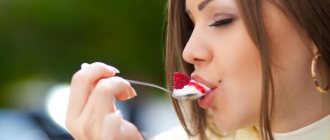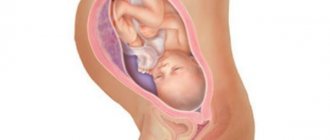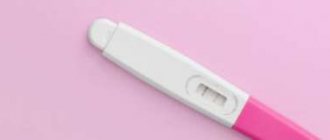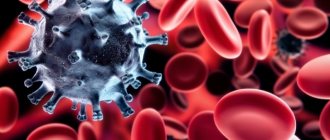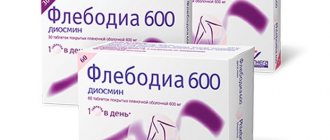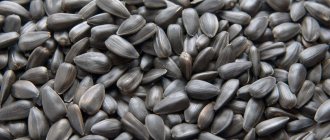It turns out that seeds are good for pregnant women
It’s not for nothing that a pregnant woman’s body requires seeds; this means that they contain substances necessary for the development of the child. Modern medicine confirms this fact, and it turns out that the seeds have benefits for both the child and the mother.
The content of folic acid, polyunsaturated fatty acids, microelements, protein, which serves as a supplier of amino acids, as well as a whole set of vitamins in the seeds is simply a treasure, if you look at it from the point of view of building a child’s body. Can they be neglected?
As for the female body, the mother’s, then for it, too, the seeds have invaluable advantages.
- Toxicosis. In the early stages of pregnancy, many experience toxicosis. Women endure it painfully, especially because they can’t take any medications, but they have to do something to save themselves. This is where the sunflower comes to the rescue. If you chew the seeds, the nausea will gradually subside
- Heartburn. In the later stages, another misfortune occurs: heartburn begins to torment. And again , the seeds help, they actively relieve heartburn. During pregnancy, in the last months, heartburn is especially annoying. And here it is such a pleasure. It’s delicious and the heartburn goes away.
- Constipation. Pregnant women sometimes experience constipation, and if such a tendency existed before pregnancy, then it gets worse when it occurs. Seeds help fight this problem.
- Peace. Pregnant women are sometimes prone to irritability and are easily upset. With such an unstable mood, a monotonous activity, such as husking seeds, calms, extinguishes a bad mood, and brings balance.
- Other useful things. This includes regulating the alkaline balance, strengthening nails and hair, and preventing diseases of various internal organs.
.
During pregnancy, at 29-34 weeks, the child is actively undergoing bone growth and teeth formation, and at this time, along with red meat and fish, it is necessary to increase the consumption of nuts and seeds.
There is one more property of seeds that is not very useful for pregnant women - it improves appetite.
Mother-in-law says: no!
It’s probably not worth mentioning this, but why not cheer yourself up. We have repeatedly said that there is no reason to trust “people's experts” in such matters. There are scientifically confirmed and substantiated facts, but signs do not apply to them. And if your mother-in-law managed to intimidate you with something, then here we will reassure you: all the funny and funny “predictions” about seeds and pregnancy have no basis! Here are the most common folk versions of why pregnant women should not eat seeds:
- the child will be whiny;
- the baby will be slobbery;
- the child will be snotty;
- the child will be dark-skinned;
- the uterus softens;
- your tests will be bad.
There is also a sign that eating seeds in large quantities during pregnancy leads to the birth of a baby with large hair. It should be noted that there is some logic here, since seeds have a very beneficial effect on the condition of hair, skin and nails. The rest of the nonsense has no basis.
One step from benefit to harm
Here the issue of dose comes first, and it is important not to overdo it. Seeds should be eaten in moderation
This is especially true in the later stages of pregnancy, especially if you have already gained a significant amount of weight. This product is difficult to digest, can it be abused?
There is a significant amount of fat, and if you eat too many seeds, you may experience a feeling of heaviness in the stomach, or even nausea.
In the early stages, in the fight against toxicosis, there is also a danger of overdoing it. With toxicosis, the level of acetone in the body increases, and a large number of seeds eaten can complicate the process of its elimination. And then the nausea will not only not stop, but will also intensify.
- Take care of your teeth. Everyone knows that teeth can suffer during pregnancy because the fetus takes as much calcium as it needs and from where it can. Therefore, there is no need to aggravate the condition of your teeth by gnawing on seeds. You need to peel the seeds with your hands and eat the extracted grain.
- If your throat hurts. A cold during pregnancy is undesirable. But, if you happen to have a cold in your throat, under no circumstances consume the seeds at this time. There is a thin film on the grains, it can cause irritation and coughing, and it is not at all indicated for pregnant women.
- Other concerns. Some people are allergic to sunflower seeds, but they should know this in advance.
.
Others are afraid of getting problems with appendicitis because of the seeds. The reasons for it are not completely clear, but if you are afraid, then it is better not to eat; pregnant women do not need additional worries.
Is it harmful to eat sunflower seeds during pregnancy?
Now let's try to figure out this issue. Why can seeds be harmful and dangerous during pregnancy?
First of all, their uncontrolled consumption can negatively affect body weight, the control of which is quite important during pregnancy. Everyone knows that seeds are one of the high-calorie foods, so eating them without restrictions can be fraught with excessive weight gain during pregnancy. However, if you eat one handful, and not every day, there will definitely be no harm.
Secondly, if there are dirty seeds, then infectious diseases are not far away. Therefore, you should maintain hygiene - wash your hands, rinse the seeds, and then dry them in the oven or in a frying pan. These preventive measures are quite enough to stay safe and enjoy the taste.
Thirdly, everyone knows that while expecting a child, it is very important to monitor dental health. Everyone also knows that shelling seeds leads to damage to tooth enamel. How to make sure that the enamel is not damaged, and at the same time eat the seeds? Yes, clean them by hand. The absorption process will slow down (therefore, it will not be possible to eat many seeds) and intact enamel will remain.
Fourthly, sunflower seeds lovers are often afraid of appendicitis. However, peeled seeds cannot affect this in any way. Only the husk of the seeds, which the stomach is not able to digest, can have a negative effect.
What to do with fried seeds
There will be real benefits from seeds during pregnancy, but only under certain conditions.
- . You shouldn't eat roasted seeds. Heat treatment emasculates them, the amount of desirable substances as a result decreases, and the calorie content increases. This is not at all beneficial for pregnant women, but rather harmful. If you really can’t bear to eat roasted seeds, then buy raw ones and fry them at home in a dry frying pan, or better yet, in the oven. And under no circumstances add salt. Increasing the amount of salt for pregnant women is contraindicated, as this increases the risk of edema.
- There is no need to buy peeled sunflower seeds. They can be dirty, and they quickly lose their good qualities when undressed. And if you fry them, then, indeed, some microbes will be neutralized, but along with them the last benefit will be lost.
- The best way to eat seeds is to pick them out of the sunflower in which they grew, ripened and dried.
- You should eat no more than 100 g of seeds per day.
But in general, pregnant citizens, do not deny yourself the pleasure! Seeds are tasty and healthy, eat them, but don’t forget to stop in time.
Myths about the dangers of seeds during pregnancy
Even in the last century, women were warned that consuming seeds during this period could cause the child to be whiny, slobbery, snotty or dark-skinned. For women's health, the seeds were dangerous because they soften the uterus and may cause poor blood tests. All this information is not confirmed by research, so it makes no sense to believe in it. The only logical warning is that if a pregnant woman eats a lot of seeds, the baby will be born hairy. This can be explained by the fact that the seeds have a good effect on hair, nails and skin.
As already mentioned, doctors even advise pregnant women to eat seeds, but in small quantities. Thanks to this product, many expectant mothers cope with constipation and heartburn attacks, which happens very often during pregnancy. They are considered safe and effective even when compared to some medications. In order to understand whether you can or cannot eat seeds during pregnancy, you need to know about the composition of this product. It is very useful for all people, especially women carrying a baby.
What does it contain
They contain the following substances:
Vitamins
- Vitamin A . Helps improve vision and strengthen the immune system. Has a beneficial effect on the condition of hair, nails, bones and teeth.
- Vitamin B1. Has a beneficial effect on the nervous system and digestion. Thiamine, produced under the influence of this vitamin, is necessary for stable heart function. This vitamin takes part in the processes of hematopoiesis and its circulation in the body.
- Vitamin B4. Sufficient consumption of it along with other beneficial substances has a preventive effect for the proper development of the fetal neural tube.
- Vitamin B5. Has a positive effect on brain function. Participates in various processes occurring in the body.
- Vitamin B6. Relieves the condition of toxicosis in the early stages of pregnancy. Participates in the proper formation of the child’s nervous system and brain.
- Folic acid. A necessary substance for the body of a woman carrying a child. It is required for the normal development of tissues and internal organs of the fetus. A deficiency of this substance threatens fetal development.
- Vitamin E. A natural antioxidant that helps maintain beauty and youth. Affects cell renewal and strengthening the walls of blood vessels. Including in the placenta, which contributes to a good supply of nutrients to the child.
Minerals
- Iron. Thanks to this substance, hemoglobin is formed, which is necessary for the supply of oxygen to the cells of the mother and child.
- Zinc. Promotes good development of the child’s bone tissue and a successful birth outcome for the mother. In women with insufficient zinc levels during pregnancy, the birth process may be complicated.
- Potassium. This substance is involved in the process of removing unnecessary fluid from the mother’s body. Maintains magnesium levels.
- Magnesium. Reduces anxiety and the development of heart disease. A deficiency of this substance leads to cramps, which can cause premature birth.
We reveal the question: Watermelon during pregnancy, fighting swelling
As you can see, the seeds have great benefits. Therefore, a pregnant woman can safely add them to her diet. It is especially useful to use them for nausea and heartburn. This helps to reduce them. But like any product they have their limitations.
Is it possible to have seeds in the third trimester of pregnancy?
Strawberries during pregnancy: more benefits than harm!
The popularity of strawberries is much higher than that of all other berries. It attracts both adults and children. Let's talk about the benefits of strawberries for a woman who is in the happiest period of expecting a child.
If the pregnancy period falls during the strawberry season, then every expectant mother has a reasonable question: is it possible to eat this berry without harm to her own health and the health of the baby?
The queen of berries came to us from America, but she has long felt like a local resident on our continent. Strawberries are extremely healthy and are directly filled with various vitamins and microelements.
This wonderful summer treat contains such a varied amount of substances needed during the difficult period of pregnancy that it is difficult for other berries and fruits to compete with it.
Strawberries during pregnancy will bring undeniable benefits if consumed in moderation - a couple of times a week, a few berries .
Strawberries contain a fairly large amount of beta-carotene , and it has a very good effect on the development of fiber in the eye of a growing baby.
Garden strawberries are rich in fiber and pectin , and there is nothing better for the treatment and prevention of constipation, because pregnant women often suffer from digestive problems.
Regular consumption of strawberries can significantly increase the immunity of the expectant mother and reduce the number of colds during the cold season.
If you eat the berry in large quantities, you can not only break out in a rash, but also have a negative impact on the baby ( the child will have a tendency to be allergic to strawberries from early childhood ).
Is it possible to take a bath during pregnancy?
A hot foam bath is relaxing and calming
Source
Dried fruits during pregnancy 3rd trimester
Dried fruits
Pregnancy is a special condition. During the period of bearing a child, a woman begins to carefully monitor her diet, guided when choosing products primarily by their usefulness.
Dried fruits occupy a special place in the diet of a pregnant woman . which have a number of irreplaceable and useful qualities:
saturate the body with vitamins (B1 - B9, C, PP, E, K, H, provitamin A) and minerals (calcium, magnesium, chromium, potassium, copper, zinc, phosphorus, selenium, sodium, iron);
Without a doubt, freshly picked fruits also contain many beneficial elements . But before they get to the table, they go through several stages of processing, including temperature and chemical.
This allows you to preserve the marketable appearance of the fruits during transportation, but has a negative impact on their vitamin and mineral composition and overall usefulness.
The use of dried fruits as a source of vitamins is due to their naturalness and safety . Drying of fruits is carried out at a temperature not exceeding 50°C, which allows saving most of the useful components.
Dried fruits contain large amounts of fructose . This is an important moment for pregnant women, because many are often “craved for sweets.”
Dried fruit can be a tasty and healthy alternative to sweets and cakes . the use of which can negatively affect weight.
Another important point: dried fruits do not contain acid, which negatively affects tooth enamel. On the contrary, they contain a lot of calcium, which is necessary for the health of the teeth and bone tissue of a pregnant woman.
at what month do signs of pregnancy appear? If you have hypertension and you want to cure it, then it is very important to find out what reason leads to high blood pressure. Doctors like to write the diagnosis “essential hypertension,” i.e., that such and such a patient has
A handful of dried fruits will be an excellent snack for a pregnant woman . dried fruits are very high in calories, they contain several times more nutrients than dried fruits
Source
Can pregnant women eat kozinaki?
Kozinaki is a traditional Georgian sweet made from nuts and honey . Russian industry produces delicacies from both nuts and peeled sunflower seeds, sesame seeds, puffed rice, fruits with honey or sugar. The factory product uses low quality ingredients and artificial additives. It is very useful to make dessert yourself. Kozinaki contains a combination of carbohydrates and fats that is dangerous for your figure. If a pregnant woman gains more than normal, then this is not the most suitable food, but sometimes it is permissible to pamper yourself with a minimal amount of delicacy.
Homemade kozinaki made from prunes, crushed nuts, flax seeds and oatmeal with honey
How to choose and eat seeds
So, the answer to the question whether pregnant women can eat seeds is obvious. It is not only possible, but it is advisable to periodically consume this delicacy, because it contains many useful substances that are so necessary during pregnancy
But it is very important to choose the right sunflower or pumpkin seeds. In this case, you need to consider whether roasted seeds can be consumed by pregnant women.
After all, their benefit is minimal. Any heat treatment, even a short one, deprives the seeds of most minerals and vitamins, leaving only fiber. Therefore, expectant mothers need to eat them raw. If you don't like raw kernels, you can dry them a little before eating.
Pumpkin and sunflower seeds should not be salted before use. In this form, their usefulness is reduced.
The product must be clean. Otherwise, the risk of possible intestinal infection increases. Therefore, it will be better if you buy raw seeds, wash them well and dry them a little.
How many seeds should a pregnant woman eat per day?
As you know, everything is healthy in moderation, so you need to eat seeds carefully, without exceeding the prescribed dose. So, to get all the benefits from them, you need to consume about 100 grams of seeds per day. If a pregnant woman eats a lot of seeds, she may experience constipation, nausea, and heaviness in the stomach. Another disadvantage of seeds is their calorie content. One glass of the product contains 500 kcal, so it is extremely undesirable for pregnant women to eat them in large quantities, because they may become overweight.
Danger
It is important to understand that no matter how useful the product is, it must be used carefully . By following these rules, you will protect yourself from possible problems:
- Clean the beans only by hand. Manufacturers do not always care about the purity of their products, and rinsing roasted seeds is not recommended. Therefore, the only way out in such a situation is to use manual cleaning.
- During pregnancy, you need to prepare your own seeds. Packages often contain low-quality seeds, and some brands even boast of heavy metals in their product.
- You should not consume more than 100 grams of seeds per day.
- If a pregnant woman is rapidly gaining weight, it is better to find another source of useful elements. Seeds are extremely high in calories, so you shouldn’t indulge in them too often.
- It is better to give preference to dried rather than roasted seeds.
In moderate quantities, seeds will only benefit a pregnant girl and her child. However, before use, you should still consult a doctor.
Whether the product will be useful depends on compliance with the rules of use.
Proper nutrition during pregnancy: 3rd trimester
In the third trimester of pregnancy, the child is already formed and viable, all he can do is gain weight, and the woman’s body is already beginning to prepare for childbirth and breastfeeding. Nutrition during the third trimester should not overload the body, be light and at the same time balanced.
How to choose the right foods in the last three months of pregnancy
You should choose lean meats such as beef, chicken, duck, rabbit, and turkey. It is good to boil or stew the meat, bake it, after cutting out the fat from it. You can eat meat and fish not every day, but 4 times a week. Do not use meat broths as food; they impair liver function. Two weeks before giving birth, the portion of meat can be reduced by two to three times or abandoned altogether: the baby is already formed, mature, and this will not harm him, and the woman’s body will relax, the muscles of the perineum will prepare for childbirth, without meat they will be more elastic and the baby It will be easier to pass through the birth canal.
It is better to eat potatoes young and with their skins, carrots and beets fresh and boiled, any cabbage can be used, but broccoli is healthier, greens must be consumed daily.
You should not get carried away with tomatoes, because they can cause allergies, but cucumbers can be eaten; they also have a mild diuretic effect. When choosing fruits and vegetables, it is better to take domestic ones, all for the same reason: so as not to put the unborn child at risk of allergies. They should be eaten according to the season: in summer and autumn, eat fresh, and in winter and spring, eat fresh only what is well stored (carrots, beets, potatoes), the rest is either taken out of the freezer (pumpkin, green peas, berries), or in dried form. The berries can be frozen for the winter, dried, rubbed with sugar, or made into five-minute jam. Nature provides everything, and in winter it is harder for the body Source
Why do you crave seeds during pregnancy?
It happens that it is when carrying a child that a woman craves those products that she had never thought about before. This is due to hormonal changes in the body, and, most likely, the baby simply needs the substances contained in these products. Sunflower seeds also belong to this kind of food: pregnant women often notice that they want to chew them, which means that the substances contained in them are necessary for the development of the baby. But if there are any atypical changes in well-being after consuming seeds, a woman should consult a doctor.
